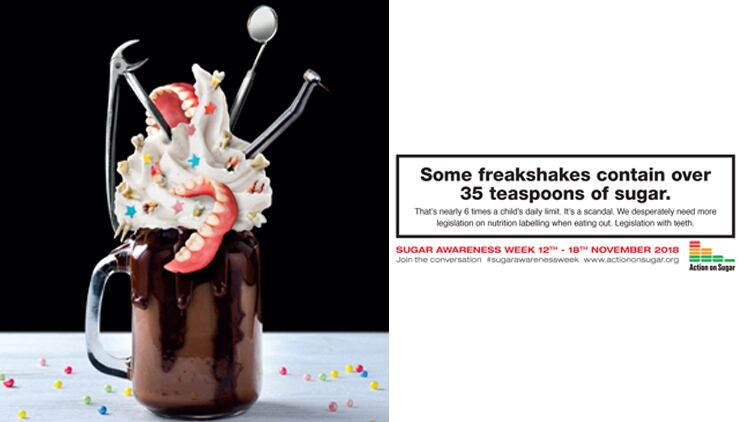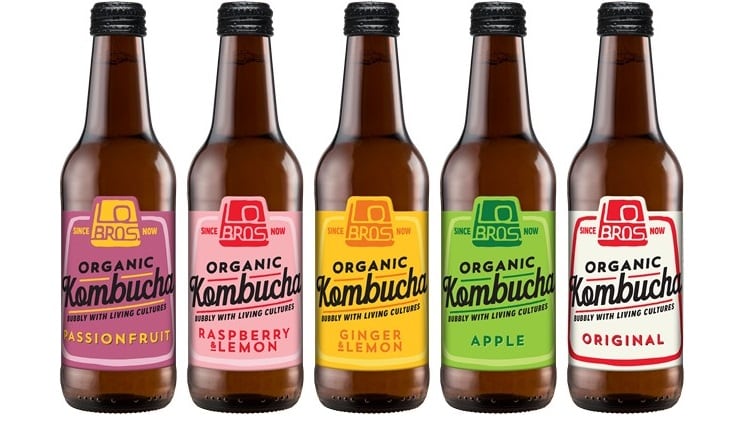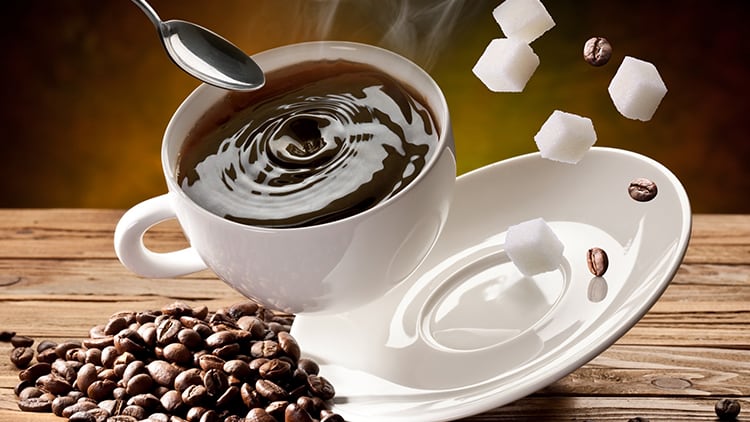The research, from a survey by Action on Sugar, based at Queen Mary University of London, claimed M&B brand Toby Carvery’s Unicorn Freakshake was the most shocking with 39 teaspoons of sugar – more than six times the recommended daily amount for a seven to 10-year-old.
The shake also has 1,280kcal per serving – more than half the daily recommended amount of calories for an adult and four times PHE’s proposed calorie limit.
It also discovered that Toby Carvery’s cookie and chocolate freakshake contained 24 teaspoons of sugar (94g) and 961 calories per serving.
The findings concluded that all products sold in high-street venues and fast-food chains, with nutrition labelling available online, would receive a ‘red’ (high) label for excessive levels of sugar per serving.
Action on Sugar is calling for mandatory traffic light coloured nutrition labelling across all menus, while the Government is consulting on menu calorie labelling.
It is also calling for a ban on the sale of milkshakes that exceed a calorie limit of 300 calories per serving. This contrasts with Public Health England (PHE)’s ambition to achieve a 10% reduction in sugar by mid-2019 and a further 10% by mid-2021 to meet the 20% overall target.
Informed decisions
A Toby Carvery spokesperson said: “Freakshakes only feature on our main menu and are not targeted at children.
“We share our nutritional information online for guests to access and we are very mindful of our role in helping guests’ make informed decisions about what they eat and drink while dining with us.
“We also regularly work with our suppliers to explore ways we can reduce sugar levels in our dishes and have also committed to PHE’s sugar reduction programme.”
A spokesperson for Harvester echoed the comments from Toby Carvery about nutritional information being on its website.
They said: “We make our calorie information available online and take our nutritional responsibilities very seriously, with our menus offering choice and healthier options for our guests.
“We have also been recognised by the Soil Association Out to Lunch campaign for continuing to develop our children’s menu and offering healthier choices for young guests.
“This year we have also committed to PHE’s sugar reduction programme and are focusing on reducing sugar in some of our higher-sugar desserts.”
Action on Sugar researched and registered nutritionist Kawther Hashem called on the Government to legislate to ensure food and drink companies display clear nutritional information.
Excessive intake
Hashem added: “Undoubtedly some of these milkshakes contribute to excess sugar and calorie intake and it is shocking this information is hidden from the consumer, who would struggle to find it.
“It is time the Government introduced legislation to force companies to be more transparent about what it is in their products by displaying clear nutrition information online and in the outlets, at all times.”
Milkshakes with more than half an adult's daily calorie allowance are unnecessary and unacceptable to sell, according to Action on Sugar nutrition campaigner Holly Gabriel.
She said: “There should be a limit of 300 calories per serving on these drinks. If you choose to eat out, you could unknowingly be consuming up to four times the amount of sugar and calories to a similar product from a supermarket, which demonstrates how easy it is to reduce sugar and calories.”
PHE needs to do more than just pursue its sugar reduction programme to tackle childhood obesity, according to Action on Sugar chairman and professor of cardiovascular medicine at Queen Mary University of London Graham MacGregor.
“Despite milkshake being incorporated into the PHE’s sugar reduction programme as part of the Government’s childhood obesity plan, it is clear from our survey that much more needs to be done than a 20% reduction,” he added.
“These very high-calorie drinks, if consumed on a daily basis, would result in children becoming obese and suffer from tooth decay – that is not acceptable. These high-calorie milkshakes need to be reduced immediately below 300 calories per serving.”
Founder of charity the Dental Wellness Trust Linda Greenwall outlined the impact excessive sugar levels have on children’s teeth.
“These findings are remarkable, especially given tooth decay among children in Britain is now at a record high, largely because food and drink products are packed with unnecessary sugar,” she said.
“As the number of youngsters admitted to hospital to have their teeth extracted continues to escalate at a cost of more than £36m to the NHS, manufacturers, the out-of-home sector and parents must take immediate responsibility by significantly reducing the amount of sugar given to children, as well as enforcing daily brushing to reduce the likelihood of tooth decay.”




